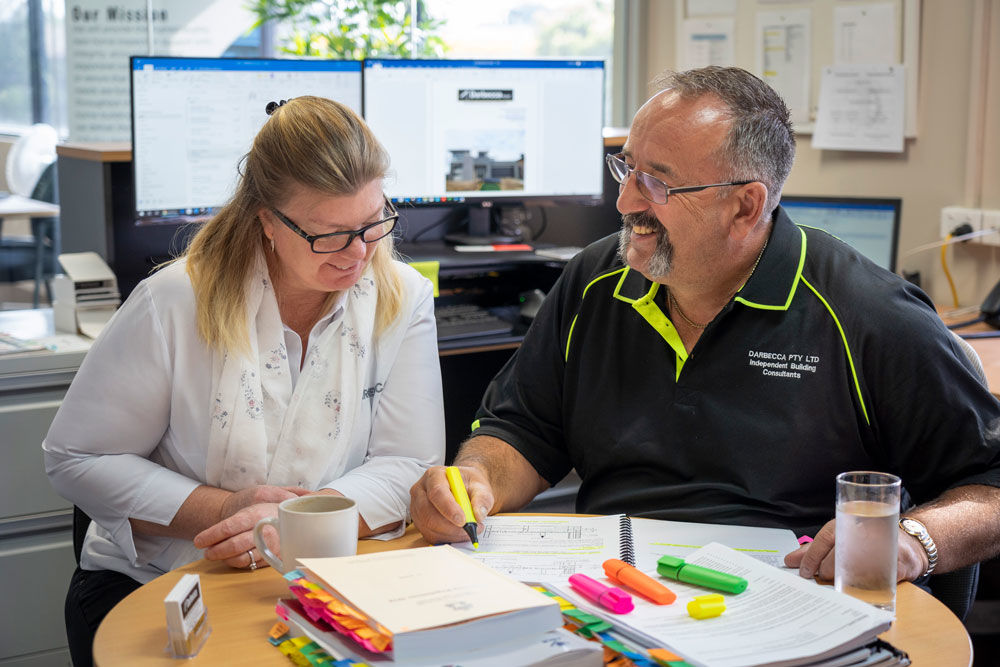Building Inspectors vs. Building Consultants: What’s the Difference?
When you're embarking on the exciting journey of building a new home or undertaking a renovation, one thing that can give you peace of mind is knowing that the construction is being done right. That’s where building inspectors and building consultants come in. But do you know the difference between these two essential roles? In this blog, we’ll break down the distinctions between building inspectors (surveyors or certifiers) and building consultants (homeowner agents), and explain how each can help ensure your project runs smoothly.
Building Inspectors (Surveyors/Certifiers)
A building inspector, also known as a building surveyor or certifier, plays a critical role in ensuring that construction work meets mandated requirements. They are licensed professionals who typically work with local councils, builders, and homeowners to ensure compliance.
Key Responsibilities of Building Inspectors:
- Inspections at Key Stages:
Building inspectors conduct inspections at limited stages of the construction process to verify that the work complies with building regulations. For example, they might inspect the foundation, slab steel, framing, and check for occupancy requirements at completion.
Homeowners should be aware that the certifier/surveyor is not typically involved from the frame stage through to the final occupancy inspection. - Compliance with Local Regulations:
Their primary responsibility is to ensure that construction follows the relevant building codes, zoning laws, and regulations in your area. This is crucial for ensuring your property’s safety and long-term value. - Issuing Certifications:
In some cases, building inspectors are also responsible for issuing building permits or compliance certificates once work has passed inspections. These documents are required for legal occupancy or for selling the property in the future. - Ensuring Safety:
Inspectors look for potential hazards and construction defects, helping prevent issues that could compromise the structural integrity or safety of the building.
Useful Links Relating to Certifiers/Surveyors:
- QBCC:
Role & Responsibilities of a Certifier
Code of Conduct for Building Certifiers - VBA:
The Role of Building Surveyors
Code of Conduct for Building Surveyors
When You Need a Building Inspector:
- Before beginning any significant building work, to ensure the correct permits are in place
- During construction, for mandatory inspections by a building surveyor
- At the completion of the project, to confirm your new home meets minimum occupancy requirements
Building Consultants (New Home Stage Inspections)
Building consultants, on the other hand, are experts in the construction industry who provide detailed inspections and reports at all critical stages of your new build. Their focus is on workmanship and the builder’s adherence to contract requirements, particularly those outlined in the NCC, relevant Australian Standards, and manufacturers’ specifications. While they don’t have the authority to issue permits or certifications, their role is invaluable in helping homeowners ensure the quality of their new home.
Key Responsibilities of Building Consultants:
- Stage Inspections:
Building consultants conduct inspections at various stages, similar to building inspectors, but with an emphasis on workmanship and material quality rather than code compliance.
Typical stages include:
Pre-pour steel, slab, frame, pre-plaster, fixing, waterproofing, final inspection, maintenance, and post-maintenance.
“Works to date” visits are also available and are typically booked by homeowners who initially proceeded without a consultant but now wish to resolve emerging issues. These can be arranged at any stage, provided the builder is given reasonable notice.
- Identifying Potential Issues:
Consultants assess whether the work aligns with the NCC, relevant standards, and manufacturers’ guidelines. They identify design flaws, workmanship issues, or deviations from the plans that could lead to future complications. - Detailed Reporting:
After each inspection, consultants provide comprehensive reports outlining any concerns. This is especially valuable for homeowners seeking assurance that everything is being built correctly and to specification.
When You Need a Building Consultant:
- At every major stage of your new home construction
- To ensure the builder maintains quality and adheres to contractual obligations
Key Differences Between Building Inspectors and Building Consultants
| Building Inspectors | Building Consultants |
| Focus on compliance with building codes | Focus on quality, workmanship, and identifying defects |
| May issue permits, certificates, and approvals | Do not issue permits or certifications |
| Mandated by law for certain inspection stages | Contracted by homeowners or developers for advisory support |
| Inspect limited stages of construction | Inspect the overall quality and workmanship throughout the build |
Why Building Inspectors and Consultants Are Both Essential
Both professionals play a vital role in your construction project. Engaging both a building inspector and an independent building consultant gives you the confidence that your home is not only compliant with regulations but also built to a high-quality standard. Whether you’re building from scratch or undergoing a major renovation, these experts can help ensure the process is smooth, safe, and successful.

